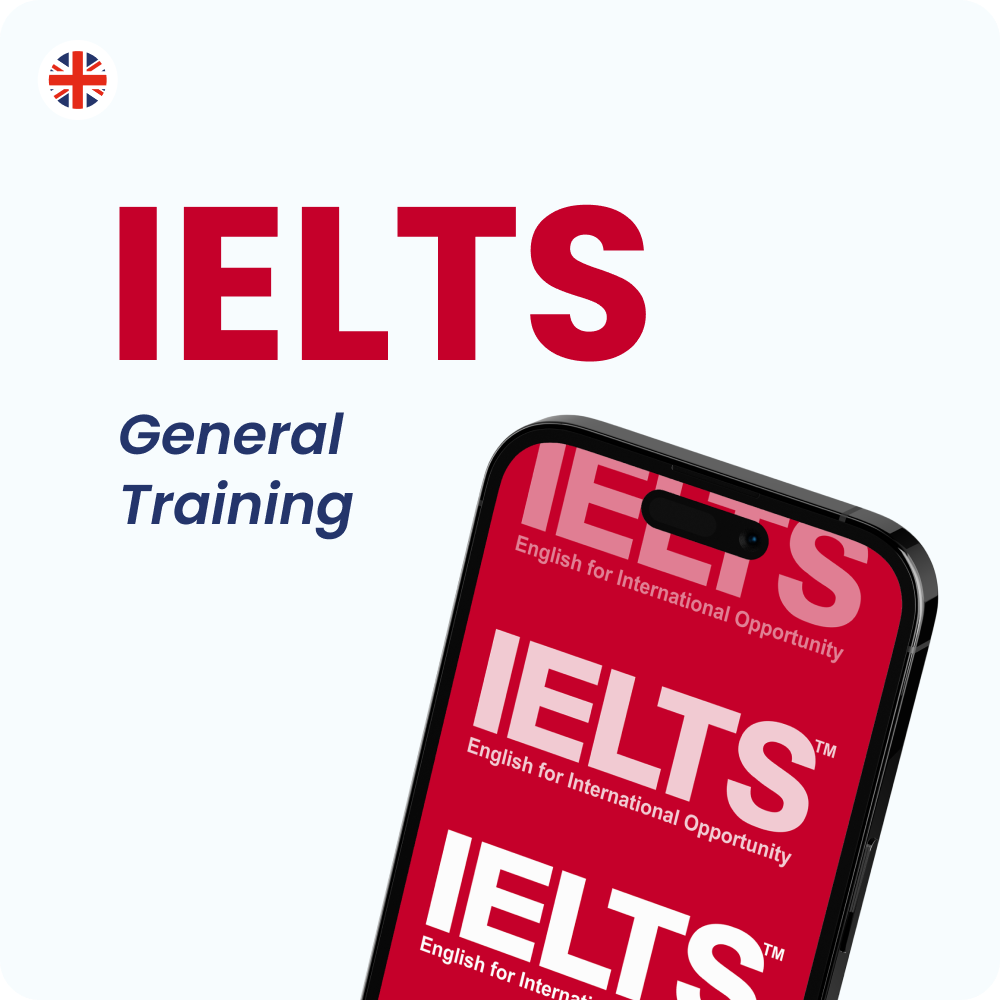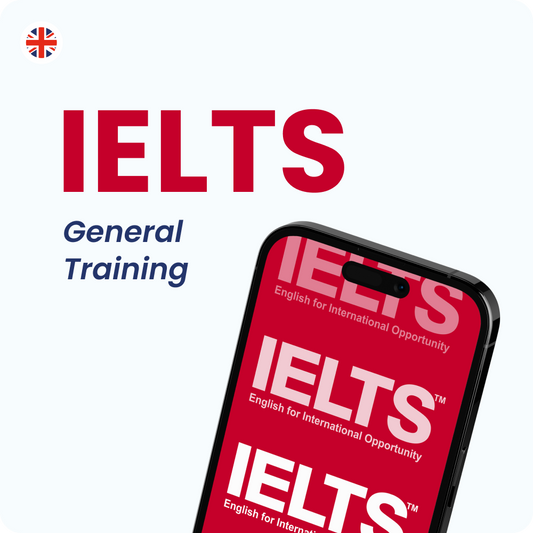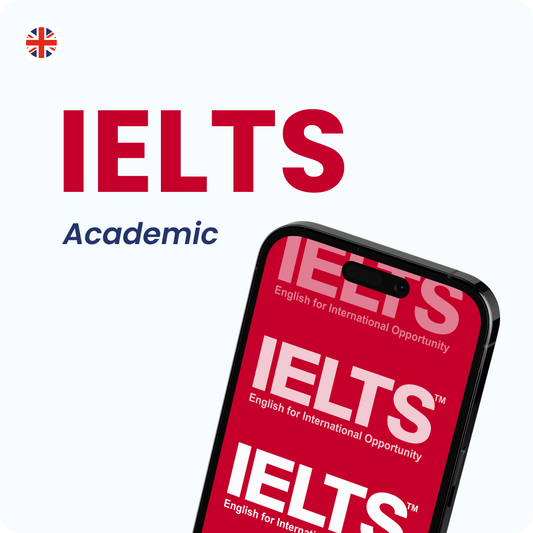IELTS General Training
IELTS General Training

1 IELTS General Training mini-test

4 practice tests

78 course sheets

1,700 training exercises
✨ 100% satisfaction or your money back*!
Couldn't load pickup availability
Vous êtes une école ? Un organisme de formation ? Contactez notre équipe pour bénéficier de prix préférentiels.
View full detailsIELTS General Training

-
Description
-
Why PrepMyFuture?
IELTS General Training: the key to your international professional project
Pass the IELTS General Training with our comprehensive, bilingual course. Optimal preparation for your career or immigration plans in an English-speaking country.
Prepare for IELTS with PrepMyFuture training
PrepMyFuture offers a unique approach to ensuring your success. Progress at your own pace with step-by-step learning organized by topic and exercises tailored to your level. Our diverse materials, performance analyses, and detailed answer keys provide you with customized learning to help you achieve your goals.
12 months of access
Single payment
Without subscription
12 months of access
Single payment
Without subscription
12 months of access
Single payment
Without subscription
12 months of access
Single payment
Without subscription
12 months of access
Single payment
Without subscription
12 months of access
Single payment
Without subscription
12 months of access
Single payment
Without subscription
12 months of access
Single payment
Without subscription
12 months of access
Single payment
Without subscription
Comprehensive content to help you prepare well
-
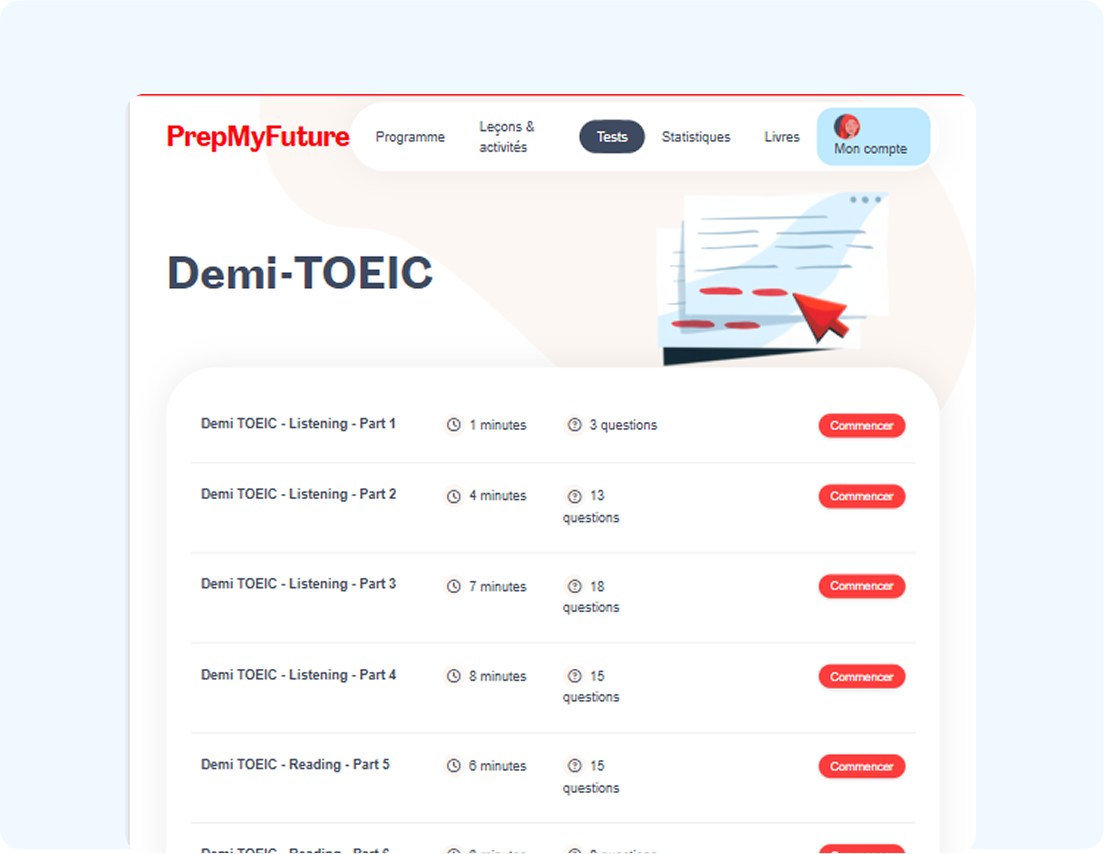
Methodological tips for each test
Targeted advice and proven techniques to approach every type of question with confidence and strategy.
-
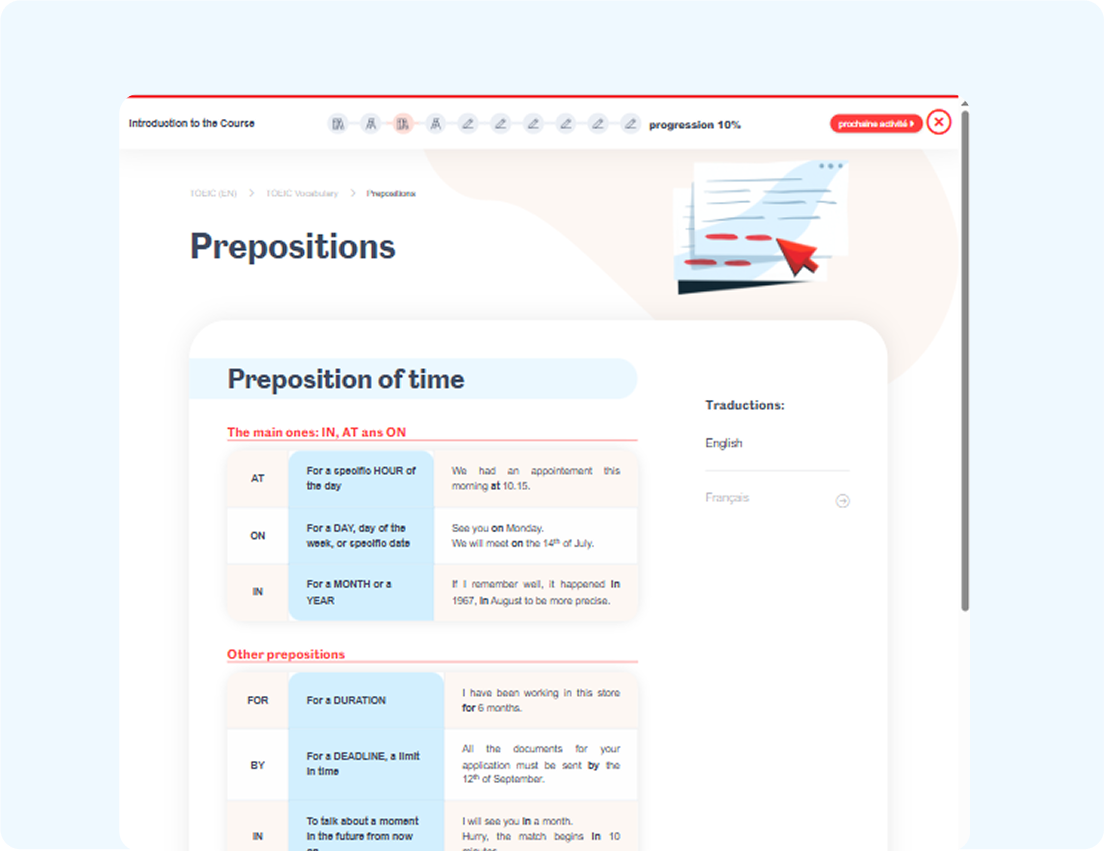
Content 100% compatible with the official IELTS test
Updated teaching materials to perfectly match the IELTS requirements.
✅ Satisfaction guaranteed or your money back - Learn without pressure
At PrepMyFuture, we want your learning to start off on the best possible terms. You sign up, and if it's not for you... we'll refund you.
The conditions are simple:
- ⌛ Make your request within 7 days of purchase.
- 📉 Have answered less than 100 questions on the platform.
- 📩 Send a simple email to Adm@7speaking.com
Why hesitate? You try, you discover, and if it doesn't fit with your learning method, you get your money back.
They chose PrepMyFuture
-
I had a great experience with PrepMyFuture! Their support team responded extremely quickly to my inquiries, allowing me to get help without delay. The level of support provided exceeded my expectations.
Cesar, PrepMyFuture student -
Very good tool. The programs offered are not only aligned with the exam expectations, but also designed to provide progressive and structured support. The platform also allows for targeted work.
Julie, PrepMyFuture student -
The platform is comprehensive, easy to use, and the exercises are completely similar to the exams. I've used the GMAT and TOEFL platforms; each offers hundreds of questions, tests, and worksheets. It's ideal for practicing and succeeding!
Leonore, PrepMyFuture student
Un outil également conçu pour les professionnels de l'éducation

Pour les écoles
Accélérez la réussite de vos étudiants aux certifications avec un entraînement adaptatif personnalisé

Pour les organismes de formation
Ajoutez de la valeur à vos formations et générez des revenus supplémentaires avec des révisions en autonomie et des préparations spécialisées aux certifications
Users also liked
Find our various IELTS preparation programs. IELTS General Training | IELTS Academic.
-
IELTS General Training
Vendor:PrepMyFutureRegular price 99€Regular priceUnit price / per -
IELTS Academic
Vendor:PrepMyFutureRegular price 99€Regular priceUnit price / per
FAQ
Frequently Asked Questions
What if it doesn't work for me?
PrepMyFuture is a 100% online platform dedicated to preparing for language tests and certifications. Once registered, you'll access a structured program with courses, interactive exercises, and progress tracking tools.
Guaranteed?
Our courses are designed specifically for each certification (TOEIC, CLOE, etc.), with targeted content, realistic training, immediate feedback and personalized support.
Were the contents designed with official publishers?
Yes. For some certifications, such as the TEF, we use official content provided by the CCI of Paris Île-de-France to prepare you in conditions as close as possible to the actual exam.
How do I track my progress on the PrepMyFuture platform?
You have a personalized dashboard to track your results, visualize your progress and identify the skills to strengthen at each stage of the training.
*What is PrepMyFuture's money-back policy?
To obtain a refund, you must submit your request within 7 days of purchase and have completed fewer than 100 questions. Your request should be sent to Adm@7speaking.com

